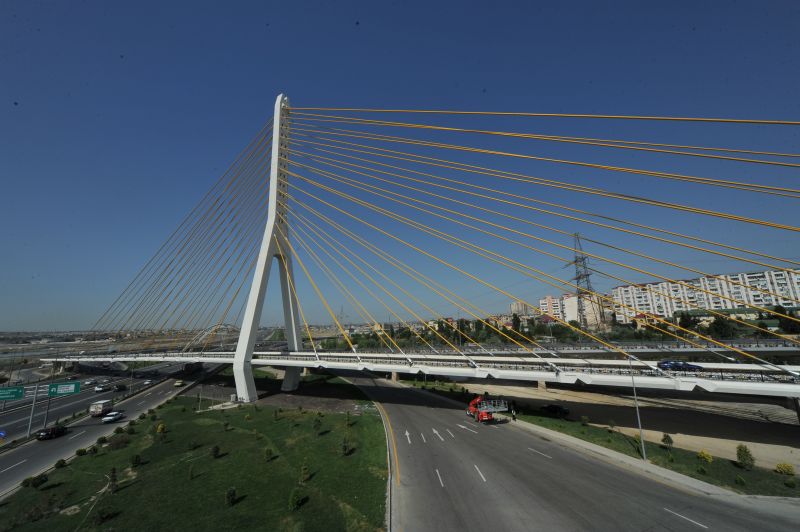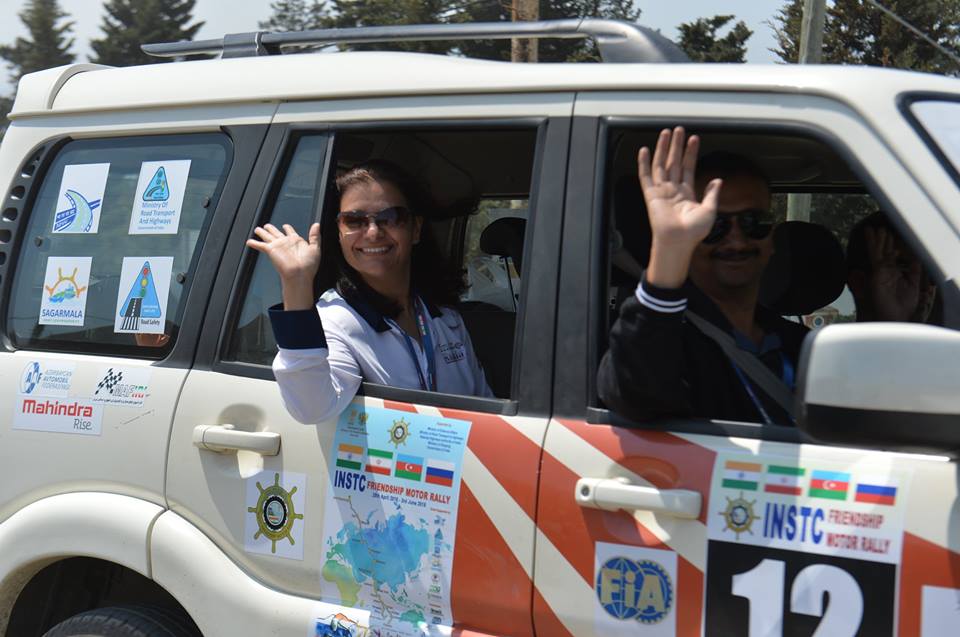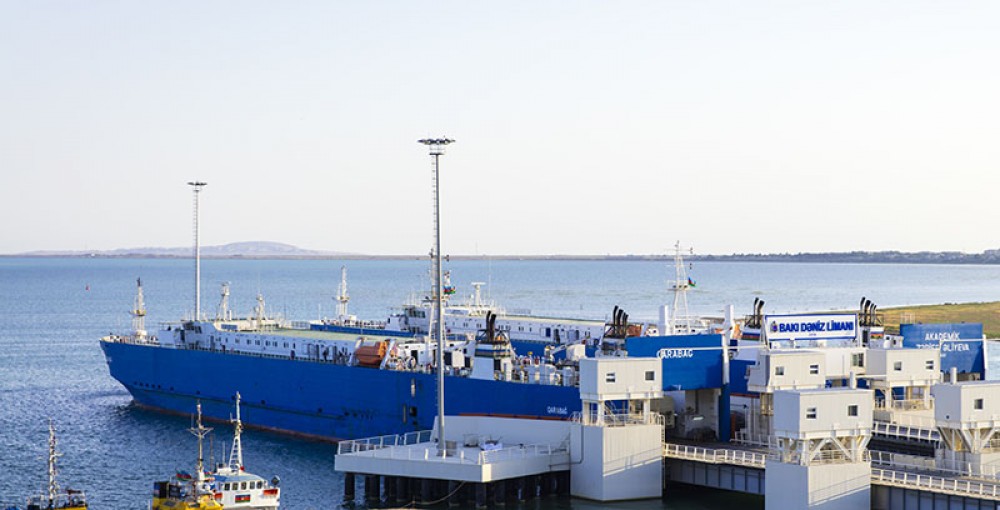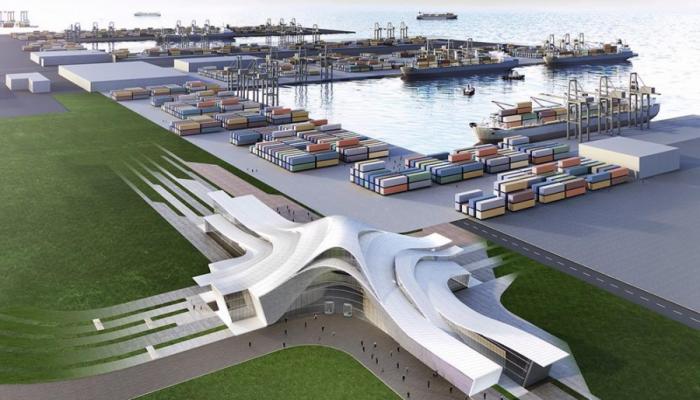AZERBAIJAN-EURASIAN TRANSPORT HUB

In recent years, the reconstruction of the transport system in the country contributes to the development of the internal transport infrastructure as part of the purposeful policy of the state and turns Azerbaijan into a transport hub of Eurasia.
Restoration of the Great Silk Road
On the initiative of national leader Heydar Aliyev, an international conference dedicated to the restoration of the historical Silk Road was held in Baku on September 7, 1998, with the participation of 9 countries (Azerbaijan, Turkey, Georgia, Ukraine, Moldova, Romania, Bulgaria, Uzbekistan, Kyrgyzstan), 13 international organizations and 32 delegations. At the end of this conference, “the main multilateral agreement on International Transport for the development of the European-Caucasus-Asia corridor” was signed on the basis of the TRACECA program of the European Union, and the Baku Declaration was adopted.
In accordance with the provisions of the main multilateral agreement, it was decided to place the Permanent Secretariat of the TRACECA Intergovernmental Commission in Baku and the official opening took place on February 21, 2001. Thus, by contributing to the restoration of the historical Silk Road, Azerbaijan played an important role in determining the main development trajectory.
At present, Azerbaijan is a participant in the Silk Road Economic Belt project initiated by China. In December 2015, a memorandum of understanding was signed between the Government of the Republic of Azerbaijan and the Government of the people's Republic of China on joint promotion of the establishment of the “Silk Road Economic Belt” within the framework of President Ilham Aliyev's state visit to China.
 Baku-Tbilisi-Kars transport corridor connecting Europe and Asia
Baku-Tbilisi-Kars transport corridor connecting Europe and Asia
The Baku-Tbilisi-Kars railway, which was commissioned on October 30, 2017, is the restoration of the ancient Silk Road on steel highways, ensuring the unification of the Trans-European and Trans-Asian railway networks.
On February 7, 2007, an agreement was signed on the construction of the Baku-Tbilisi-Kars railway on the initiative of the President of the Republic of Azerbaijan Ilham Aliyev in Tbilisi. In November of the same year, the foundation of the railway line was laid in the Marabda settlement of Georgia. In July 2008, a groundbreaking ceremony of the Kars-Georgia border section was held in Kars. The 850-kilometer part of the Baku-Tbilisi-Gars railway line with a total length of about 504 kilometers falls on the territory of Azerbaijan. 263 km of the railway line passes through Georgia, 79 km through Turkey.
The Baku-Tbilisi-Kars railway reduces the delivery time of cargo from China to Europe by more than twice compared to sea transportation. The Baku-Tbilisi-Kars railway, which serves stability and security, is expected to transport 5 million tons of cargo in the first stage, 17 million tons in the second stage, and then even more.
The construction of this project on the historical Silk Road increases its attractiveness for the countries of the region and at the same time facilitates the access of the countries of Central Asia — Turkmenistan, Kazakhstan, Uzbekistan, Kyrgyzstan, and Tajikistan, as well as Afghanistan to the European and world markets, which is of great importance in the development and integration of trade relations, economies.
One of the main elements of the Baku-Tbilisi-Kars project is that Azerbaijan, passing through the territory of Georgia, acquires a direct railway connection with Turkey, which serves to further strengthen relations between the two countries. Another issue is the extension of this project to the Nakhchivan Autonomous Republic. In the future, it is planned to lay a separate railway line from Kars to Nakhichevan.
In accordance with the instruction of President Ilham Aliyev, the free trade zone established in the Alat settlement of Garadagh district of Baku, including the territory of the Baku International Sea Trade Port, will be of particular importance in the transformation of Azerbaijan into an international transport hub. The Free Trade Zone will play a leading role in international cargo transportation and European-Asian logistics chains, as well as promote local production and provide exceptional service in the worldwide recognition of the “Made in Azerbaijan” brand. It is planned that the Free Trade Zone will serve on a regional scale a market that includes the South Caucasus, Central Asia, Iran, Russia, and Turkey and covers 130 million people.
North-South Transport Corridor connecting northern Europe with South Asia

In accordance with the "strategic road map on logistics and trade development in the Republic of Azerbaijan", Azerbaijan plays an active role in the creation of the North-South Transport Corridor. Thus, the country becomes an important transport logistics hub at the crossroads of both transcontinental corridors and in the center of Eurasian geography.
The North-South Transport Corridor will connect India, Pakistan, Iran, Azerbaijan, Russia, and Northern Europe.
Azerbaijan is the only country in the world that has a land border with Russia and Iran, and this geographical location is of great importance for the development of trilateral regional cooperation.
The process of establishing the Azerbaijani section of the North-South Transport Corridor has already entered the final stage. The railway from the Azerbaijani-Russian border to the Azerbaijani-Iranian border, which is an important part of this corridor, has been fully prepared for operation. Azerbaijan is also involved in financing the construction of the Astara-Rasht-Gazvin railway in Iran.
In the future, the North-South and Baku-Tbilisi-Kars transport corridors will be integrated. Azerbaijan is an active participant in both projects. Along with Azerbaijan, Georgia, Turkey, European countries, China, Kazakhstan, and other Central Asian republics will benefit from this.
At present, the process of transforming Azerbaijan into an international transport hub is going in the following important directions:
- Development of economic, trade, transport, and logistics relations between Europe, the Black Sea, the Caucasus, the Caspian, and Central Asia;
- Development of a multimodal corridor built on the shortest highway between China and the European Union;
- Construction of the North-South Transport Corridor;
- Reconstruction of Zangezur corridor;
 - Attraction of transit cargo within the Great Silk Road;
- Attraction of transit cargo within the Great Silk Road;
- Thanks to significant improvements in logistics and trade infrastructure and regulatory incentives, Azerbaijan is becoming a more attractive hub in the region;
- Digitizing the Great Silk Road through Azerbaijan's digital trade hub and TASIM projects;
- Coordination of relations between different transport areas;
- Adapted policy in the field of international and domestic tariffs on cargo and passenger transportation;
- Development of an adapted program of activities for the organization of multi-modal (combined) transportation, etc.
In recent years, the launch of new international airports in various regions of the country, the construction of new roads, and the role of leading regional projects in Azerbaijan contribute to the development of internal transport infrastructure as an integral part of Azerbaijan's purposeful policy and turn Azerbaijan into a transport hub of Eurasia.
The victory of Azerbaijan in the second Karabakh War and the end of the conflict paved the way for new relations in the region. The trilateral statement signed on November 10, 2020, also included a provision on the construction of new transport links connecting Nakhchivan with the main territory of Azerbaijan. At present, active work is underway in the direction of the Zangezur corridor and the reconstruction of this corridor will be the next historical success of Azerbaijan.



